FAQs
Sex Addict Defined: FAQ
Not sure how to answer, “What is sex addiction therapy?” Sex addiction therapy specifically treats sexual issues such as sexual hyper-arousal, sexual compulsion, porn addiction, and sexual anorexia.
Our team of Dallas sex addiction therapists and counselors are able to help families cope with sex addiction. We have helped many clients realize the answer to, “What is sex addiction?” and begin the path toward healing and recovery. We have training and experience that helps us effectively assess, diagnose, and treat sex addiction.
A sex addiction counselor must understand both healthy and unhealthy sexuality. Healthy sexuality is nurturing and supports lifestyle balance, while fostering an intimate connection for the individual and his or her family.
Unhealthy sex, or sexual compulsion, creates damage and loss for the compulsive individual and family members. Damage can affect every aspect of the sex addict’s life, including relational, legal, occupational, spiritual, mental, and physical aspects.
One of the most frequently asked questions we get at Lifeworks Recovery is, “What is sex addiction?” Often, it is difficult to understand when healthy sexuality crosses into the territory of addiction, and a sex psychotherapist at Lifeworks Recovery is able to help identify problems and assist clients in recovery.
Some indicators of sex addiction are more obvious than others. It’s vital to be aware of when sex addiction is negatively affecting the life of oneself and one’s family.
These signs include:
- Recurrent failure to resist impulses to engage in sexual behavior
- Frequent engaging in sexual behaviors to a greater extent or for a longer period of time than intended
- Persistent desire or unsuccessful efforts to stop, reduce, or control sexual behaviors
- Inordinate amount of time spent in obtaining sex, being sexual, or recovering from sexual experience
- Preoccupation with sexual behavior or preparatory activities
- Frequent engaging in sexual behavior when expected to fulfill occupational, academic, domestic, or social obligations
- Continuation of sexual behavior despite knowledge of having a persistent or recurrent social, financial, psychological, or physical problem that is caused or exacerbated by sexual behavior
- Need to increase the intensity, frequency, number, or risk of sexual behaviors to achieve the desired effect
- Diminished effect with continued sexual behaviors at the same level or intensity, frequency, number, or risk
- Giving up or limiting social, occupational, or recreational activities because of the behavior
- Distress, anxiety, restlessness, or irritability if unable to engage in the sexual behavior
Sexual addiction is defined as any sexually related, compulsive behavior which interferes with normal living and causes severe stress on family, friends, loved ones, and one’s work environment.
Sexual addiction has been called sexual dependency and sexual compulsivity. By any name, it is a compulsive behavior that completely dominates the addict’s life. Sex becomes the organizing principle of an addict’s lives. The addict is willing to sacrifice what they cherish most in order to preserve and continue their unhealthy behavior.
No single behavior pattern defines sexual addiction. These behaviors, when they have taken control of addicts’ lives and become unmanageable, include: compulsive masturbation, compulsive heterosexual and homosexual relationships, pornography, prostitution, exhibitionism, voyeurism, indecent phone calls, child molesting, incest, rape, and violence. Even the healthiest forms of human sexual expression can turn into self-defeating behaviors if not controlled.
The path to healing begins with a phone call to the Lifeworks Recovery office and with sex addiction therapy that aids in learning to put boundaries around the addictive behavior and obtain sobriety, the starting point. To get sober and then recover, the addict will get better only if he/she does certain things, including:
- Attend weekly therapy sessions
- Be assessed by a psychiatrist for coexisting problems such as anxiety, depression, and obsessive compulsive disorder
- Attend 12-step meetings or other support groups at least three times a week
- Attend a therapist-led group for recovering sex addicts
- Complete the Recovery Start Kit for the first 130 days of sobriety, which is explained in therapy
- Begin to understand healthy sexuality and self-soothing behaviors
- Completed the 30 Tasks Model, which is explained in therapy
Healing from sexual addiction, and any addiction, requires the same task model and commitment to recovery.
The process and time needed for sexual and relational recovery and healing depends on a persons and couples determination and commitment. The first year is difficult with discovery, disclosure and establishing new healthy behaviors the main focus. The addict and partner will move through predictable stages, although not always at the same time. These stages are similar to the stages of grief in many ways.
Lifeworks Recovery does not take insurance, however you may be able to file for out of network benefits if eligible. Contact your insurance company to understand your benefits.
“If we have not peace within ourselves, it is in vain to seek it from outward sources.”
With sex addict defined, you can begin recovery. Give Lifeworks Recovery in Dallas a call today at 469-444-2787 for a free phone consultation. Or, contact us here, and we’ll be in touch for how we can help you or a loved one recover from sex addiction.

